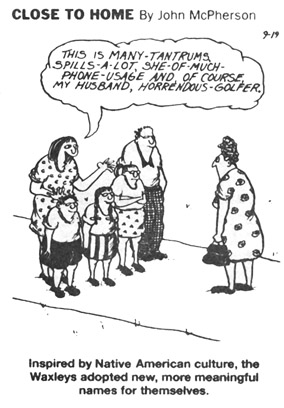 Another Stereotype of the Month entry:
Another Stereotype of the Month entry:
 Another Stereotype of the Month entry:
Another Stereotype of the Month entry:
From the Indiana Tribune-Star:
Getting carried away with political correctness
Rex Buntain/Tribune-Star
March 21, 2004
Making a mountain out of the proverbial molehill seems to take up a lot of people's time these days. In some respects we have become such a peevish society that folks can't (or won't) let their guard down long enough to enjoy the intended humor in life.
Sadly, in many regards, it is simply political correctness run amok. In 2004, we run the risk of offending or alienating certain people or groups if we utter (or, in my case, write) something that hasn't been run through the censor meter.
And often it matters not what may be intended. If something's said that somebody doesn't like, or which can easily be misconstrued, we can be assured there is always someone eager to begin playing their politically correct saw.
I write this hours after having been contacted by WTHI-TV 10 for an interview about the offensive nature of last Monday's column. For those of you who may have missed it, this is the opening paragraph of the self-deprecating column that I wrote about the trouble I encountered in building a birdhouse that the TV station based a "news" story on that evening:
Had I been born a Native American — something my generation used to call an Indian — I reckon my given name might have been "Rex Ten-Thumbs."
That's it, the whole gist of what was apparently objectionable. Being hurtful or unfeeling was certainly not my intent.
When contacted by WTHI, I rejected an offer to be interviewed because I felt that, journalistically, the station's reporters were trying to conjure up a story where none existed. I commented that the column was satirical in nature, a humor piece, not to mention the fact I was poking fun at myself for being an inept woodworker.
In the days that followed, I received no phone calls, no e-mails, no letters of protest, nor, by the time this went to press, had the Tribune-Star received any letters to the editor. I did, however, receive several e-mails from people who had watched the broadcast and were of the mind that WTHI's "story" was nonsense.
"It is sad that people cannot read an article or hear a comment any more without looking for something that might offend someone, and then go looking for someone to be offended," wrote Mary Jane Smith of Marshall, Ill. "I am sure most readers took the article, and your Native American [they were Indians when I was growing up, too] statement as it was intended.
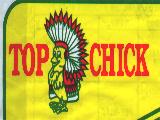
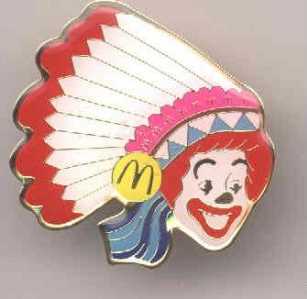
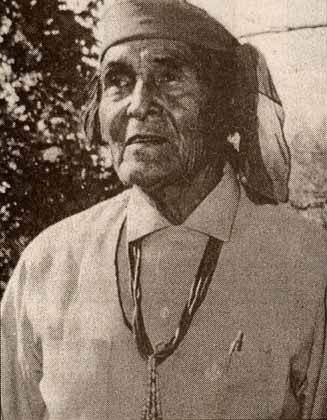
"It is sad that we have come to the place where no one can say anything without someone trying to find it 'politically incorrect.' It is also sad that some people are so easily offended by innocent remarks."
Dark Rain Thom is a noted author living with her author-husband James Alexander Thom in rural Owen County. She's a high ranking member of the United Remnant Band of Ohio, Shawnee Nation, and helped create the Circle of Advisors, a national planning council of the Lewis & Clark Bicentennial celebration. She caught the broadcast on WTHI and said she was not offended by my column in the least.
"While we don't want people to become insensitive and insulting, we shouldn't really jump to offense when something is not mean-spirited, and I don't think your comment was a mean-spirited thing," she said.
"We are so quick to take offense now when there's no offense intended and we take everything so deadly serious because we have been disrespected and we've had so much fun poked at things that weren't funny to us that we have become over-sensitive and we forget. The old people would probably have laughed at that comment."
Thom added that names used by Native Americans were often "hilarious or bawdy or just all kind of things.
"The Indian people have their backs against the wall and this is the first time they've gotten to speak out and they know they can get the ear of somebody. Maybe it was a slow news day and our administration wasn't doing anything and [WTHI] thought they could fill the space with something ridiculous."
Tom Steiger, a professor of sociology at Indiana State University, said political correctness often rises out of times with rapid social and political change. He remembers the early 1980s being the first time he heard the phrase.
"We're coming out of a tumultuous period of time in the '70s, the economy is a wreck, there's a lot of changes going on, we've had some court cases, sexual harassment is suddenly becoming something that people are talking about," Steiger said. "The ascendant social and political movements are civil rights and feminism, that's what's coming out of the '70s. Now what is socially appropriate?
"It happens fast and there's a lot of confusion over what to even call people ... and the change basically gets subverted into silly stuff and the real changes don't get done, so we fight over what to call something instead of really changing situations to make people's lives better."
Because people now are forced to be so guarded about what they say, said Steiger, discourse and debate is often a casualty.
"Now 'politically correct' basically means lying, that you say something that's pleasing and that makes everybody happy and doesn't ruffle any feathers, but you really don't mean it," he noted. "So it's a cover and there's a lot of that. My students, I see it all the time. They've learned their lessons well about what to say, but they don't even know what it means.

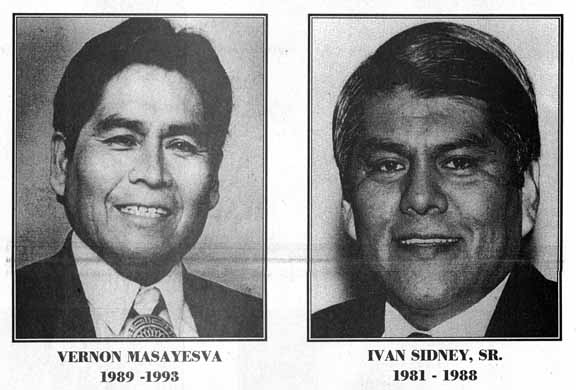
"Today, you run a risk any time you invoke any human group that's not your own, there's a real risk there. There's a remarkably overblown sensitivity and, again, most of that's misplaced and the real issues don't get discussed."
Mike Leonard, a columnist for the Bloomington Herald-Times who's also president of the National Society of Newspaper Columnists, said most columnists run into the same kind of situation at some time in their career. He agreed that certain segments of society seem to be quick to be offended.
"To an extent I think that's true," he said. "I think people have good intentions, but sometimes they lose a sense of balance."
At times, it gets downright ludicrous. A 1993 memorandum written by Jeanette J. Lim, the acting assistant secretary of civil rights, reminded the staff in the Office of Civil Rights about new terms that should be used in all communication:
— Instead of calling someone a "disabled person" the term "persons with a disability" or "individuals with disabilities" was to be used.
— No longer were the hearing impaired to be referred to as "deaf people" but "persons who are deaf" or "young people with hearing impairments."
— "Blind people" were to be referred to as "people who are blind" or "persons with a visual impairment."
Well, the National Federation of the Blind took exception and, during a convention that same year, passed a resolution stating that it had no use for euphemisms such as hard of seeing, visually challenged, sightless, visually impaired, people with blindness or people who are blind: "We believe that it is respectable to be blind, and although we have no particular pride in the fact of our blindness, neither do we have any shame in it. To the extent that euphemisms are used to convey any other concept or image, we deplore such use. We can make our way in the world on equal terms with others, and we intend to do it."
Bravo!
How this atmosphere of political correctness impacts us all is that our speech becomes stunted and our freedom of expression, a precious constitutional right, is abbreviated by verbal vigilantes.
We should all have respect for one another and make efforts not to be hurtful or uncivil and certainly not racist in our utterances. At the same time, we shouldn't be so petty about verbalizations that have no hidden meaning nor malice.
As Steiger said, "It's much ado about nothing."
Rex Buntain is a columnist and editorial writer for the Tribune-Star. His column appears Sunday and Monday. He can be reached at (812) 231-4248 or rex.buntain@tribstar.com.

A Native replies
From correspondent Firehair (edited for clarity):
Someone needs to take time to explain to this gentleman that [only] Indians get Indian/tribal names. Sometimes not even then.
That it takes family, or one's tribe, or a name giver, to bestow it. Usually.
We can't tell him about the couple other ways a name occurs—he isn't an Indian.
That generally speaking, names are given after thoughtful prayer, knowing the person for eons, then usually done with ceremony—small, or [a] bit bigger.
That, when one is named by another, it connects those two people, forever.
I can't take/use his family name—it doesn't belong to me—his family isn't mine.
His parents named him, for reasons they felt were good, right—may even have done it as an honor to someone they love—and no one should disrespect that—because in so doing, it is being rude to him, his parents—whoever named him.
And so it is for those of us who have tribal/Indian names—the many who have taken back historical family surnames—"Leader Charge," "Bad Moccasin," et al.
Maybe if we were believed, respected, worked with honestly to make reparation for the documentable atrocities—as a people—instead of being used for obnoxious logos, chants, gestures, to sell goods, as caricatures of who we were, are...
We wouldn't get so bent out of shape when we are continually bastardized.
"Chief Rain In the Face," "Hey, Pocahantas"—"do a rain dance," "where's your tipi," "gonna get mad and scalp me?"—ad infinitum.
Firehair Shining Spirit
Rob's reply
Buntain writes:
>> Had I been born a Native American — something my generation used to call an Indian — I reckon my given name might have been "Rex Ten-Thumbs." <<
No, that wouldn't be Buntain's name. He's mischaracterizing the traditional naming process used by many tribes. He's also stereotyping Natives in a couple ways: 1) by implying they're all the same, and 2) by implying they all have descriptive names like "Ten-Thumbs."
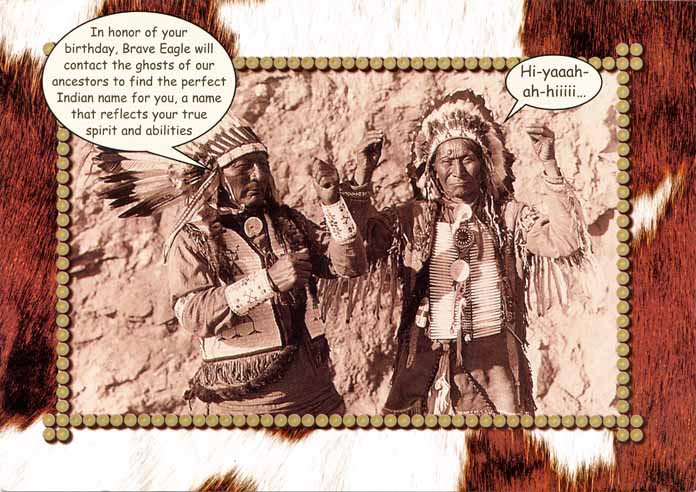
>> That's it, the whole gist of what was apparently objectionable. Being hurtful or unfeeling was certainly not my intent. <<
Buntain doesn't have to be malicious to be ignorant or insulting. Besides, he uses his entire column to show how unfeeling and unsympathetic he is toward Native concerns.
>> I commented that the column was satirical in nature, a humor piece, not to mention the fact I was poking fun at myself for being an inept woodworker. <<
Buntain also was poking fun at Native naming conventions. He thinks it's funny that Indians supposedly choose names like "Rex Ten-Thumbs." Why else would he use this name to poke fun at himself? The name itself isn't funny. What's allegedly funny is how Indians would name him after his limited woodworking skills—in other words, the naming process.
In short, he's poking fun at Native naming conventions as well as at himself. If you're a traditional Indian who gained a name in a solemn ceremony, you might well find that offensive. But whether this naming process is offensive or not, it's stereotypical.
As for the "political correctness" charge, see Political Correctness Defined for more on the subject.
Related links
"Funny" Indian names
|
. . . |

|
All material © copyright its original owners, except where noted.
Original text and pictures © copyright 2007 by Robert Schmidt.
Copyrighted material is posted under the Fair Use provision of the Copyright Act,
which allows copying for nonprofit educational uses including criticism and commentary.
Comments sent to the publisher become the property of Blue Corn Comics
and may be used in other postings without permission.